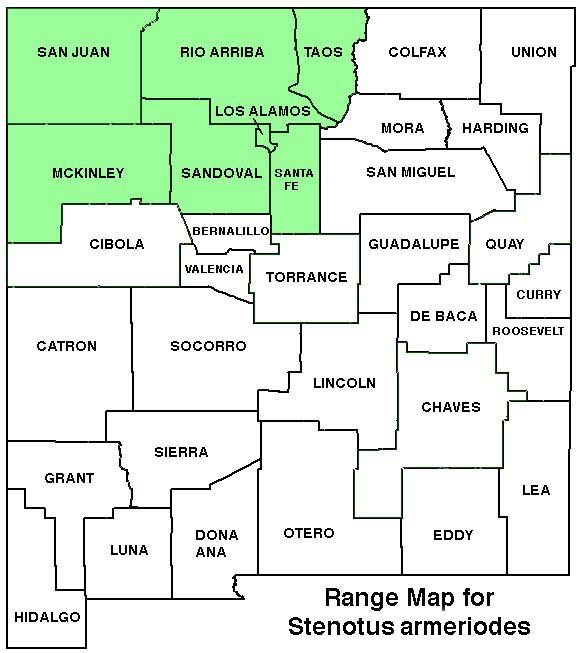WILDFLOWERS OF NEW MEXICO

Low-growing and mat-forming, these hardy plants spread in a circle with the center dying as the plant ages to create a ring, often with dead vegetation in the center. Note the thick rosette of sticky, narrow basal leaves and the yellow flower heads on stems above the leaves. Also called Thrifty Goldenweed, Thrift Mock Goldenweed, and Ring Grass Sunflower.
FLOWER: April–August. Usually a single flower head on each 5/8–5 inches long (10–130 mm) sticky stem (peduncle); heads have 5–15 elliptic to oval, yellow rays, each to 3/4 inch long (19 mm), around a yellow center of tiny disk flowers. The phyllaries beneath the head are waxy, unequal, have rounded to blunt, green ends, and are in three rows. White, hair-like pappus bristles surround, and are nearly as long as, the disk flower tubes.
LEAVES: Basal and alternate but much reduced up the stem. Blades ascending, rigid, 3-nerved, 2/3–3 1/2 inches long (17–90 mm), to 3/8 inch wide (1–10 mm), narrow, linear to oblong, and tapering to a point; surfaces smooth, sticky (viscid); margins entire or sometimes lined with minute ciliate hairs.
HABITAT: Sandy, gravelly, rocky, clay soils of mesas, mountain scree slopes, canyons, badlands; shrublands, badland flats, pinyon-juniper-oak woodlands, ponderosa-Douglas-fir forests.
ELEVATION: 5,500–10,000 feet.
RANGE: AZ, CO, MT, ND, NM, UT, WY.
SIMILAR SPECIES: Stemless Alpine Daisy, Tetraneuris acaulis, is mat-forming but has leaves covered with silky or stiff hairs (not sticky), and ray flowers tipped with 3 rounded lobes.
NM COUNTIES: Northwest fourth of NM foothills and mountains at mid- to high-elevation, dry habitats: Los Alamos, McKinley, Rio Arriba, San Juan, Sandoval, Santa Fe, Taos.









MOCK GOLDENWEED
STENOTUS ARMERIOIDES
Aster Family, Asteraceae
Perennial herb


















THE CONTENTS OF THIS WEBSITE ARE COPYRIGHTED AND CANNOT BE USED
WITHOUT PERMISSION OF GEORGE OXFORD MILLER
















EMAIL ME



























Leaves are primarily basal with narrow, sticky blades and pointed tips.
Phyllaries are unequal in size and in 3 rows (right arrows), and have bunt, green ends (left arrow).




The mat-forming plant expands in a circle with the center dying as the plant ages.
















